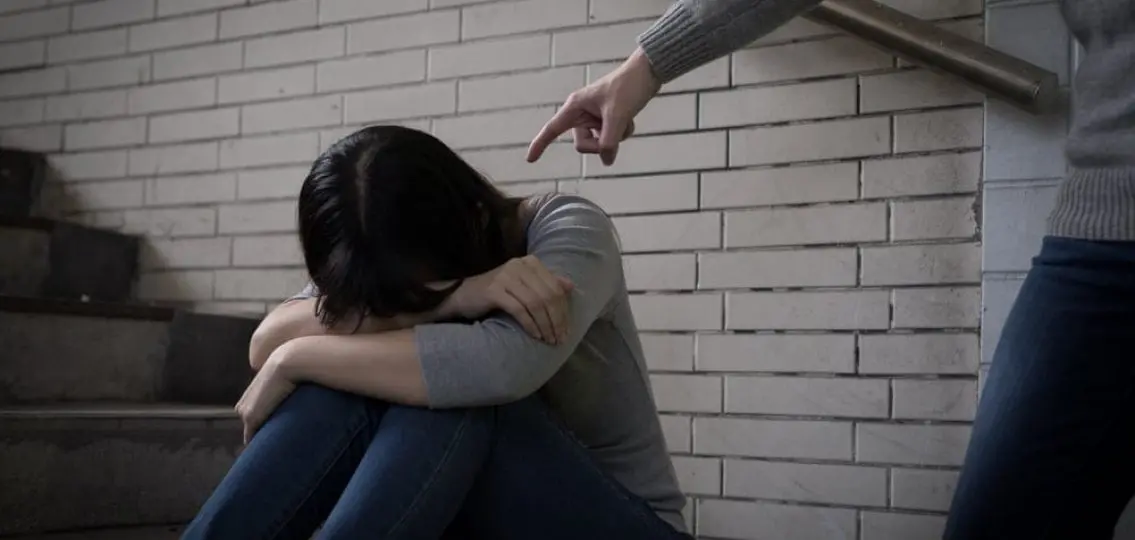Six Things Parents Can Learn From A Survivor of LGBT Bullying
I’m not a father, but I am a professor of creative writing and a former high school teacher. I work with, and care about, young people. Many of them are vulnerable, “different,” intelligent, and creative—students at special risk of becoming bullying statistics. Coincidentally, I’m also a contented gay man who survived some pretty intense homophobic bullying in my youth. Today, in my writing, teaching, and lecturing, I mentor young people who are struggling with the after-effects of teenage harassment, and try to raise general social awareness about adolescent bullying and self-harm.
Last November, a fourteen-year-old boy stepped in front of a truck. Brandon Bitner was a talented violin player and a straight-A student, but he wore tight-fitting pants and dyed his hair black. According to a suicide note, he couldn’t face being shoved and called “faggot.”
One year earlier, Jaheem Herrara hung himself in his bedroom, after telling his mother in the preceding weeks how tired he felt of being called gay. And Rutgers student Tyler Clementi jumped off the George Washington Bridge after being filmed making out with another man.
A teen’s suicide is like an atom bomb in a parent’s world. It ruptures the natural cycle. It leaves unimaginable pain.
My own story of dealing with bullies and suicidal thoughts dates from the 1980s in apartheid South Africa. At twelve, I was sent away to the nearest suitable high school—a government, whites-only boarding school. I had the bad luck to be pegged a “sissy.” One prefect thought I needed to be toughened up. He walloped me with a pillowcase filled with athletics spikes and made me lie under blankets on a hot afternoon. He told the other twelve-year-old boys to keep their distance from me, since there was “something wrong” with me.
Between the loneliness, the unexpected homesickness, and the violence, I had suicidal thoughts. It was hard to call my parents, since seniors had preference at the single pay phone and I was too afraid to “snitch” to a teacher.
In the end, I told my parents, who complained to the school administration and got the worst culprit transferred.
What I Learned From Dealing With Bullies
We learned many things from our mistakes and successes:
1) Teens seal themselves against adult scrutiny.
Every parent imagines they’ll sense when something is seriously wrong with their child. But some kids can prove surprisingly adept at hiding trauma. I came home from boarding school and disguised my troubles. When asked about school, I was non-committal. I kept the intensity of the persecution from my parents, to stop them from doing something I feared would make the bullying worse.
2) Don’t victime blame the child or minimize the experience.
Once, when I complained to my mom about the prefects being “mean” and “rough,” my mom said, “Everyone has a tough time in eighth grade, darling. You just have to hold tight.” She was right, but at the time her words made me feel like there was something wrong with me for suffering. Another time, my father said, “I know you, Glen, and you’re not a sissy. You don’t deserve this.” But, in my heart, I feared I was a sissy, and that therefore, by his logic, I might deserve beatings. So, don’t even hint that your child may be doing something to encourage victimization. Instead, let them know you’ll do everything you can to keep them safe.
3) Show moral outrage.
Years later, my parents shared their fury about my mistreatment. But, at the time, they didn’t want to demoralize me or make me reject my new school. When they complained to the principal, they did so secretly. But this tactic left me unsure of what they believed, which fed my self-doubt. By contrast, my best friend’s mother expressed naked contempt for a system that would tolerate such abuse. I took reassurance in her moral frankness, which implied I was not at fault.
4) Affirm dignity.
Don’t discuss your child’s sexual orientation while discussing the persecution. Try not to inadvertently side with your kid’s tormentors. Accept your children for who they are, and don’t put any pressure on them to figure themselves out prematurely.
5) Insist the school takes action.
When my parents spoke to the principal, he tried to say I was exaggerating. “Lots of children struggle their first years,” he said. “I’ll talk to these lads.” But my father wouldn’t accept this. “You need to do something, or you’ll have a public scandal,” he said. Threats to the school’s public image achieved what mere concern about a child’s well-being did not.
6) Create a loving foundation for your child.
As the philosopher Camus said, “In the depth of winter I finally realized there was in me an invincible summer.” It’s our job as adults to impart such summers to the kids in our lives, and to remind them they can unlock this sunshine whenever the outside world seems dark and gloomy.




